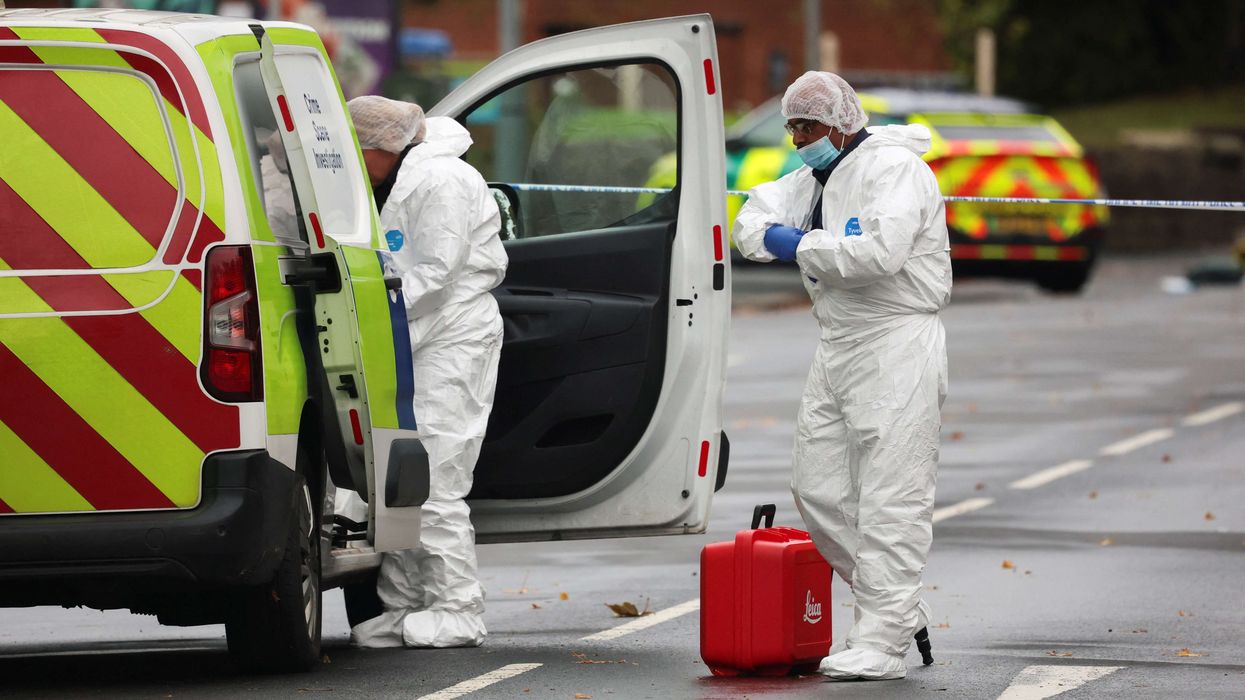Highlights:
- Police name victims as Adrian Daulby, 53, and Melvin Cravitz, 66
- Attacker Jihad Al-Shamie, 35, shot dead by police within minutes
- Three others remain in hospital with serious injuries
- Prime minister Keir Starmer chairs emergency meeting, vows stronger security
POLICE have named the two men killed in the attack on a synagogue in Manchester as 53-year-old Adrian Daulby and 66-year-old Melvin Cravitz.
Three others remain in hospital with serious injuries after a man drove a car into people before stabbing them outside Heaton Park Hebrew Congregation Synagogue on Thursday morning, as worshippers gathered for Yom Kippur, the holiest day in the Jewish calendar.
Police confirmed the attacker, who was shot dead at the scene within minutes, was 35-year-old Jihad Al-Shamie, a British citizen of Syrian descent. Greater Manchester Police (GMP) said three other people – two men in their 30s and a woman in her 60s – were arrested on suspicion of commission, preparation and instigation of acts of terrorism.
GMP chief constable Stephen Watson said: "Two members of our Jewish community have sadly died." He added that officers shot dead the attacker within seven minutes of the first emergency call. "The driver of the car was seen then to attack people with a knife" while wearing a vest that appeared to be an explosive device, but police later confirmed it was not functional.
A witness told BBC Radio he saw police shooting a man after a car crash. "They give him a couple of warnings, he didn't listen until they opened fire," the witness said. Police praised the swift action of people who reported the attack, saying it prevented the suspect from entering the synagogue.
Aryeh Ehrentreu, 56, who was praying in a nearby synagogue, said: "Then the security asked us to close all our doors in the synagogue, so we knew the attack took place." He called the incident "extremely worrying."
A neighbour of Al-Shamie told the BBC: "To have somebody like that living on my estate, it's scary."
Prime minister Keir Starmer left a European summit in Denmark early to chair an emergency response meeting in London. He later addressed the Jewish community in a televised statement, saying: "I will do everything in my power to guarantee you the security that you deserve." He added: "We must be clear it is a hatred that is rising once again, and Britain must defeat it once again."
UK’s Chief Rabbi said the attack was the "tragic result" of an "unrelenting wave of Jew hatred". King Charles III and Queen Camilla said they were "deeply shocked and saddened".
Israeli prime minister Benjamin Netanyahu called it a "barbaric attack", adding: "Israel grieves with the Jewish community in the UK." Israel’s foreign minister Gideon Sa’ar accused UK authorities of failing to curb "rampant antisemitic and anti-Israeli incitement".
United Nations Secretary-General Antonio Guterres said: "Houses of worship are sacred places where people can go to find peace. Targeting a synagogue on Yom Kippur is particularly heinous."
Manchester is home to one of the largest Jewish communities in the UK, with more than 28,000 people recorded in 2021, according to the Institute for Jewish Policy Research.
The city has previously witnessed deadly terror attacks, including in 2017 when a suicide bomber killed 22 people at Manchester Arena.
(With inputs from agencies)





